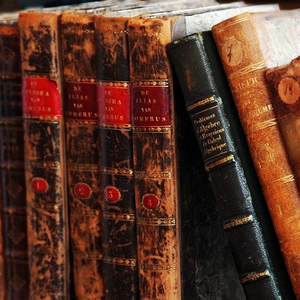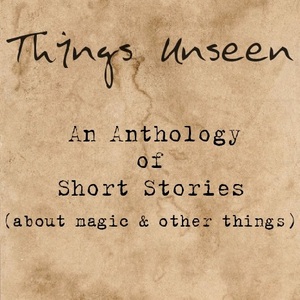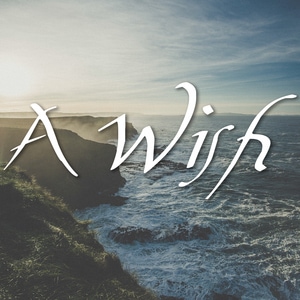As the days stretched into weeks, my brother caught less and less in his nets when he went out fishing. The creatures of the ocean seemed to flee from him as he drew near, and even his secret cove where he had first discovered the golden fish grew barren. When he went out into deeper waters, storm clouds massed overhead and the waves roiled, threatening to drag his boat down. We had done something terrible by capturing the gift of the golden fish that had been given to us, and the ocean rejected us. Weeks passed. We became thin and stretched, and we laid awake at night while our stomachs twisted with hunger, driving the possibility sleep from our minds. We were driven to eating grass–we ate the leather off our own shoes just to make it feel like there was something in our stomachs. By then, even I realized we had no choice.
We went to the golden fish and drew back the cloth over the bowl.
“Have you finally come to set me free?” it asked us. It sounded so hopeful.
“We’ve come to make our wish,” we told it.
Have you ever been starving before? Have you ever spent so much of your life constantly, endlessly starving like we did? We were stupid with hunger, and we wished for an end to the one battle we were always fighting. We wished for enough food to keep us well fed for the rest of our lives, and thought that that was the wisest thing we could do.
And we got it. A mountain of good, rich food appeared right there in our back garden, filling every corner, crushing all the plants and almost our house under the weight of it all. The top of the teetering pile reached higher than the cottage’s roof, it was the most incredible sight you’ve ever seen in your life. There were bundles of brightly colored carrots, in more colors than I even knew carrots came in. Did you know there are purple carrots? They’re not as sweet as the orange kind, but they’re so crisp when they’re fresh. There were shiny tomatoes all on the vine, red and yellow and green. And apples, with rosy cheeks and sweet white flesh, and the juice dripped down your chin when you bit into them. Fat grapes were spilling over the other fruits like purple waterfalls; turnips and beets that could have been only just pulled up out of the earth; steaming piles of butchered meat so fresh it still bled; wicker baskets piled high with speckled brown and green eggs; huge metal milk cans at tall as my hip, full of warm, white milk with the cream still floating on top; and a thousand more things I didn’t even know the names of. Overcome by wonder at the bounty, we quickly forgot about the little golden fish. We couldn’t help but laugh, laugh and wonder why we hadn’t done this right away.
As I said, we were stupid with hunger, and it didn’t take us long to realize our mistake.
For one week, we ate as well as we ever had. The fish was somewhere out in the garden, surrounded by heaps of fruits and vegetables, and it was far from our minds. For by then, the rot had set in.
We brought as much as possible into the house, but there was just too much. We had nowhere to store it all, and before we knew it the meat was covered in flies and maggots, the vegetables dried out and withered in the summer sun, the eggs went rotten, the milk spoiled and congealed, and the fruit furred with mold and fungus. There was so much of the stuff, we couldn’t even move it, we couldn’t get rid of it all. The rot and mold in the air began to make us even sicker than before. It settled in our throats and lungs making our breath come in short gasps, making our heads spin, and we vomited up what few long lasting root vegetables we had managed to salvage. And once again–again, again, always again–we found ourselves starving. We were reduced to eating the rotting food in our garden, even though it only made us sicker. So please, try to understand why we did what we did. We never wanted to, we never planned to. We were wasting away to nothing, we had no other choice.
We found the fish again, eventually, once the mountain of food that had hidden it from view had rotted away to piles of sludge and slime that oozed into the earth. It too was thin and weak, but alive, just barely. It was floating on its side in the bowl, without even the energy to sink to the bottom. Its silver eyes rolled when it saw us, and somehow it managed to ask in a rasping voice, “have you come to set me free?”
And we were so very hungry.
It was barely enough to feed the two of us, and its beautiful scales broke nearly every knife I tried to use on it. We piled those scales up, hoping to use them as money since we had nothing else, but the next morning, we found their golden luster had dulled into flakes of lead. Even the little silver eyes crumbled away like so much dust.
My brother was forced to return to the sea yet again, but his luck was even worse than before. He didn’t make a single catch, the sea was a desert for him. The ocean would grow dark and tumultuous when he set sail in his little boat, and he was afraid, afraid of what waited for him out there.
Even though all his attempts had been fruitless since we had betrayed the golden fish, he kept sailing out in his little boat, day after day, heading farther and farther out to sea, to deeper waters, in desperate attempts to catch anything at all. And then one day he didn’t come back. His boat washed up on shore, shattered to broken bits of wood. I searched for him, walking up and down the shore, calling his name, hoping that I would find him half drowned but alive, hidden by a sand dune somewhere. But I never even got his body back. The ocean had claimed my brother, in payment for what we took. An eye for an eye, and I’m the only one left, blinded by what I thought was my own cleverness. We all think we’re so clever, don’t we? Now I have nothing left. I have nothing left to want. I have nothing left to wish for.
* * *
The woman fell silent, her thin, cracked lips pressed into a hard line. Her gray eyes were flat and dull, sunk deep into hollow sockets. Her golden hair, so thin and brittle, was being blown from her scalp by the wind.
The man watched her quietly for a long time, as she teetered there on the edge of nothingness. Then he glanced down at the things he held in his arms, the mementos and treasures of someone he had loved very much, the things he was prepared to die with. To die for.
“The fish wasn’t yours to own,” he said, slowly. The woman’s expression was blank, unfocused. She stared out at the sea without seeming to hear him speak. “It didn’t owe you anything. You wasted a gift. And now you’re here, because this is your punishment.” He paused, wrinkled his nose, and shook his head. “It wasn’t even your wish. It was your brother’s wish. It was his gift. You took it from him.”
He looked again at the love notes, the limp socks. They had a little lace cuff, whose stitching was just starting to come undone.
“I’m not like you,” he said.
Slowly, as if being drawn forward against his will, he began to edge toward the lip of the cliff, until the toes of his shoes hung barely an inch over the side. Beneath him, it was a hundred feet to the waves that crashed over the dark stones; the sea an angry, churning entity of white froth cresting on gray water. He opened his arms wide, releasing everything he held into the void. The books tumbled downwards, their covers spreading open, their pages fluttering like the wings of flailing baby birds tumbling from the nest. The unbound pages, the love letters and poems signed with kiss marks, were caught by the wind and whipped away, spiraling through the air on updrafts that could have carried them halfway around the world. A pair of white cotton socks spun, intertwined, in a spiraling descent into the sea foam below.
He watched the mementos of love lost disappear into the hungry waters, and took a deep breath of the chill, salty ocean air. Then he turned back to the woman. She was watching him, her eyes deep and uncertain.
“Are you really going to jump?” he asked her.
“You let it all go,” she replied so softly that the wind stole her words away as soon as they left her lips.
“It was never mine. Not really, I don’t think.” He turned his face into the wind. It felt cool and good on his cheeks and brow. “I haven’t forgiven her,” he said, as if he didn’t want the woman to get the wrong idea. “I just… I’m not like you.” A beat of silence. “Do you think losing something can be a gift? Getting rid of something?”
“I’ve lost everything,” said the woman. “What do I do now? What else is there to do, except…” The waves thundered against the base of the cliff, churning and hungry. “I wish I knew what to do.”
He didn’t answer her. He didn’t have any answers for her. He just turned away from her, and started walking back down the hillside through the swaying purple heather, the cliff and the churning ocean and the woman with the golden hair behind him, teetering on the edge of possibilities.











Comments (4)
See all